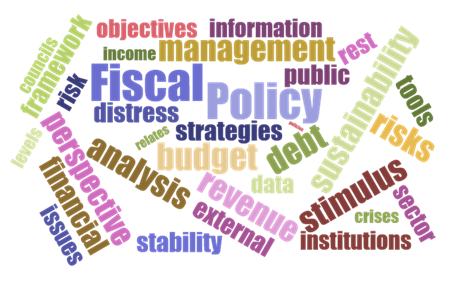
Virtual: Understanding, Assessing and Managing Fiscal Risks (UAMFR) (UAMFR)
Deadline passed
Session No.: JV 21.20V
Location: Vienna, Austria
Date: April 26-30, 2021 (1 week)
Delivery Method: Virtual Training
Primary Language: English
Interpretation Language: Russian
Target Audience
Mid-level to senior officials in ministries of finance and economy, treasuries and debt management offices, or other government offices involved in assessing and managing fiscal risks.
Qualifications
Participants are expected to have experience in fiscal policy, budgeting, treasury and debt management, and fiscal risk management and have knowledge of Excel.
Course Description
This course, presented by the Fiscal Affairs Department (FAD), forms part of FAD’s Fiscal Risk Work Program. It provides an overview of the key sources of fiscal risks and discusses the institutions that help governments better understand, monitor and manage them. It provides an overview of FAD’s Fiscal Risk Toolkit, which comprises a range of practical Excel-based tools to assist countries in analyzing and quantifying their fiscal risk exposures, such as the SOE Health Check Tool, PPP-Fiscal Risk Assessment Model (P-FRAM), the Fiscal Stress Test, Public Loan and Guarantee Monitoring Tool and Balance Sheet Assessment framework. The course provides a general overview of the toolkit as well as an introduction in the application of some of the newest tools in the toolkit. It will also discuss and discusses standards for reporting and disclosing fiscal risks. It will also discuss the implications of fiscal risks for the design and calibration of fiscal rules to help ensure governments are better prepared, and have flexibility to accommodate fiscal risks, if they were to materialize.
Course Objectives
Upon completion of this course, participants should be able to:
- Define fiscal risks and contingent liabilities and identify their key characteristics.
- Understand the main techniques and approaches used to assess macro-fiscal and specific fiscal risks
- Identify institutional arrangements that support effective fiscal risk monitoring and management.
- Understand how fiscal rules frameworks can help governments prepare for and manage when fiscal risks materialize.
- Prepare a fiscal risk statement.
Compilation of Macro-relevant Environment and Climate Change Statistics - Advanced (CMECC-A)
English | August 19-30, 2024 | In-person Training | Washington, D.C., United States
Apply online by April 21, 2024
Financial Development and Financial Inclusion (FDFI)
English | August 19-30, 2024 | In-person Training | Washington, D.C., United States
Apply online by April 21, 2024
External Debt Statistics (EDSx)
French | March 28, 2024 - May 9, 2024 | Online Training | Course conducted online
Apply online by April 25, 2024
External Debt Statistics (EDSx)
Spanish | March 28, 2024 - May 9, 2024 | Online Training | Course conducted online
Apply online by April 25, 2024
Virtual: Building Institutions to Fight Corruption (BIFC)
English (French, Portuguese) | June 3-7, 2024 | Virtual Training | Ebene, Mauritius
Apply online by April 26, 2024


